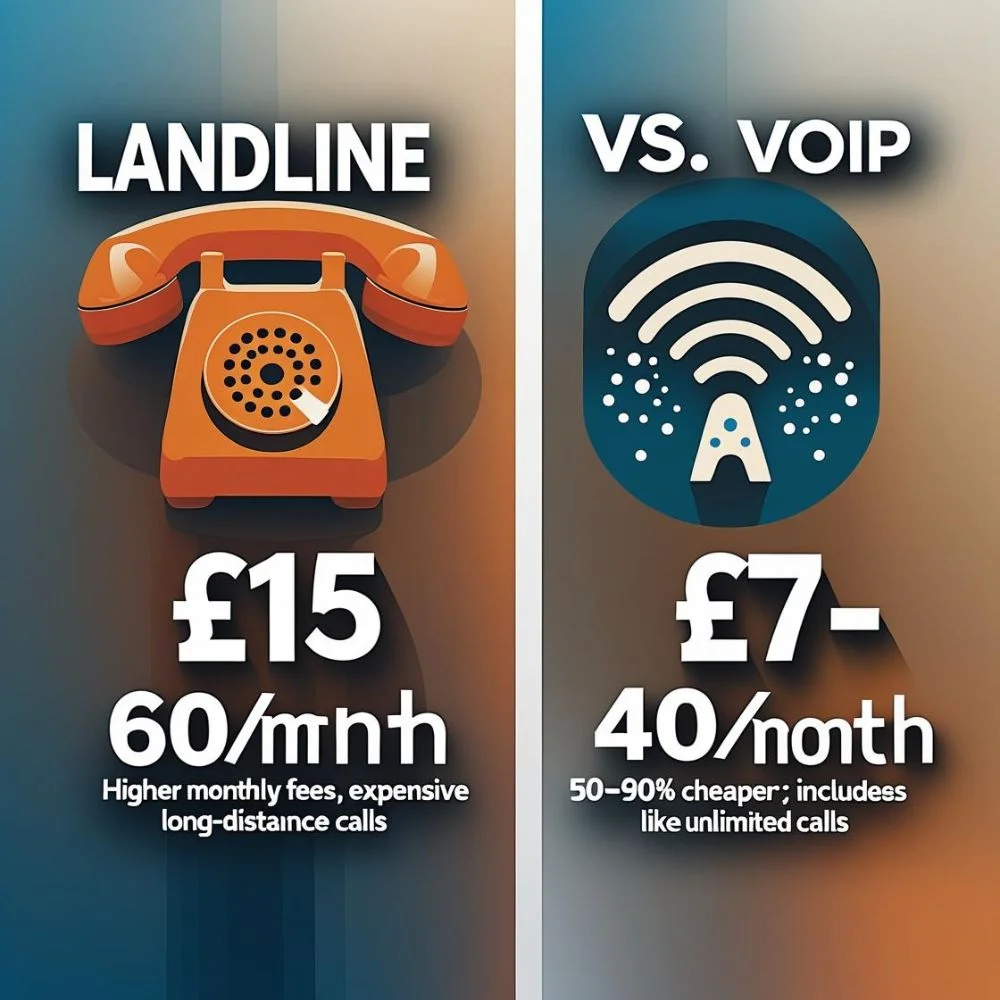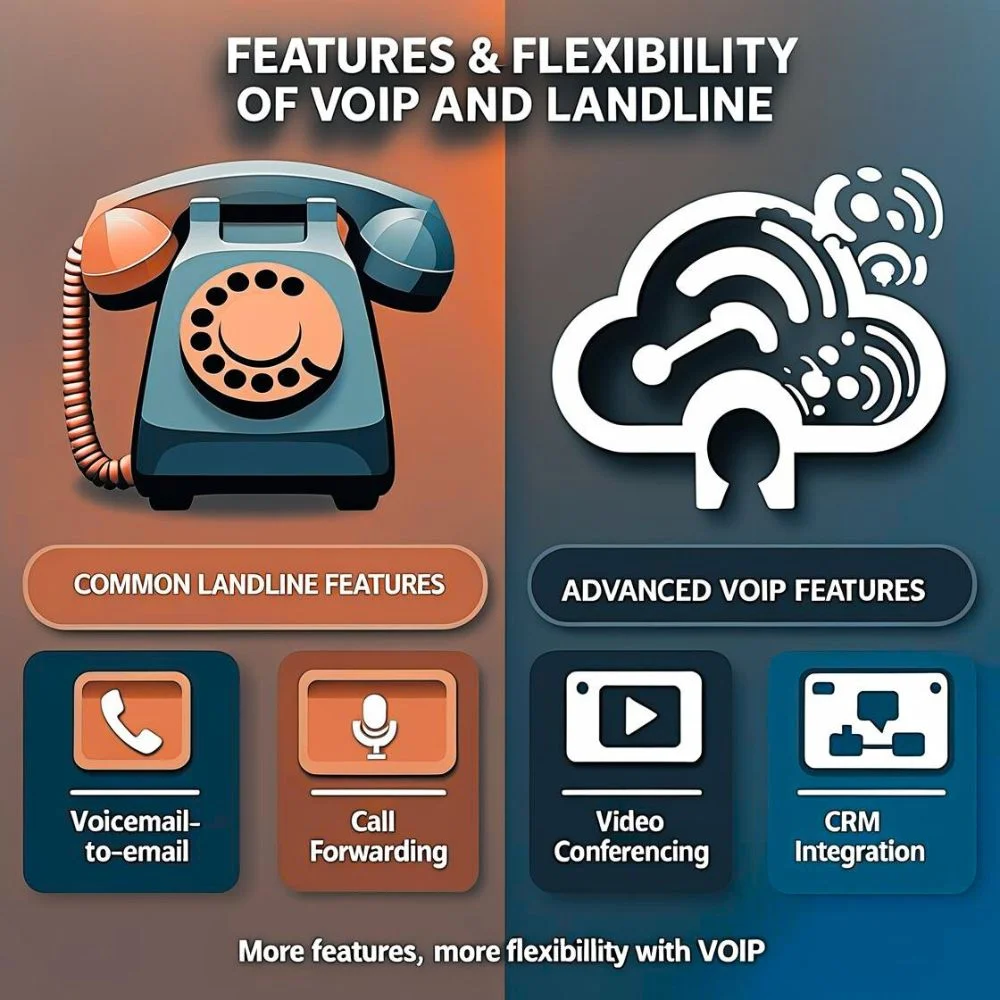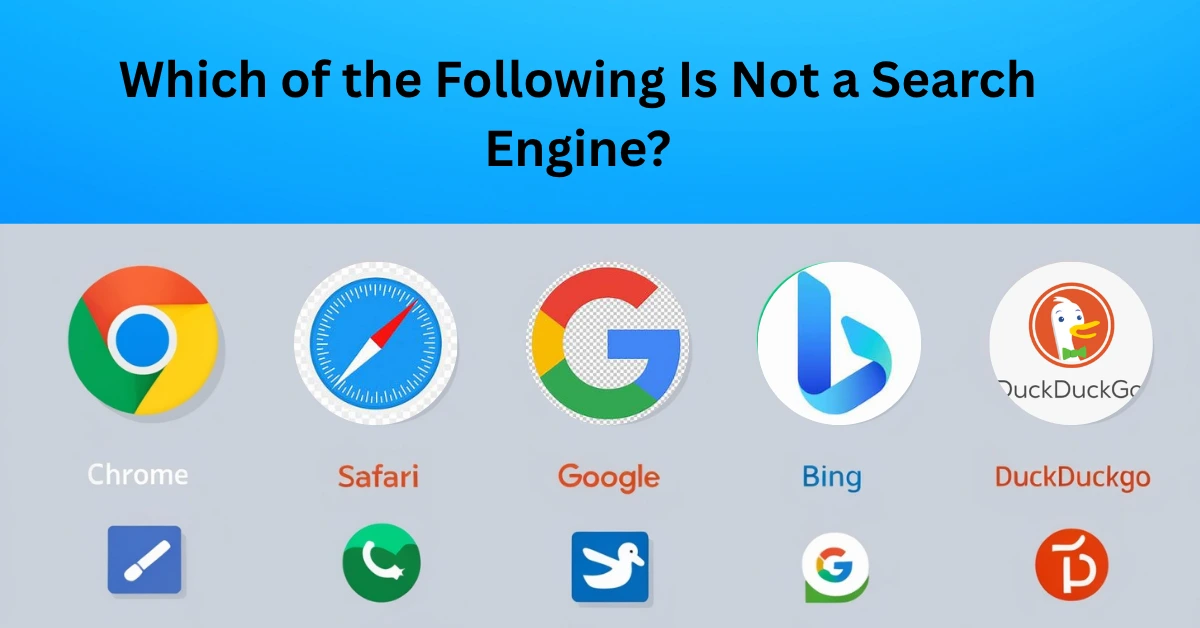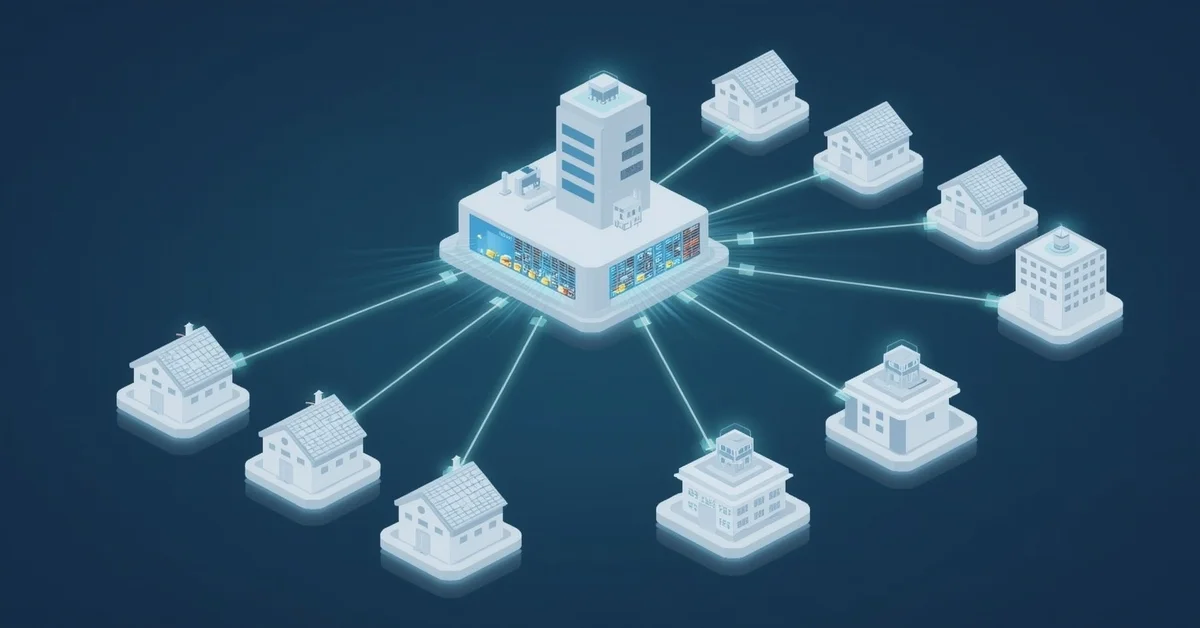If you’ve ever wondered about VoIP and landline, you’re not alone. These two phone systems serve the same purpose helping you make calls, but they work very differently. In this article, we’ll explore both VoIP and Landline in simple words, compare their pros and cons, and help you pick the best one for your needs.
What Are VoIP and Landline?
- A landline is the old-fashioned phone you plug into the wall. It uses physical wires (copper or fiber) and the PSTN (Public Switched Telephone Network) to place calls.
- VoIP (Voice over Internet Protocol) sends your voice as digital data over the internet. You can make calls using a VoIP phone, adapter or app on your computer or smartphone.
How VoIP and Landline Work?
- Landline calls travel as electrical signals through dedicated circuits.
- VoIP changes your voice into small digital signals, sends them through the internet and then turns them back into sound for the listener.
Setup & Installation
- Landline needs a technician, physical wiring and takes time.
- VoIP is largely plug‑and‑play connect a device or app to your internet and follow simple setup guides.
Cost Comparison

1. Landline Pricing
- Landline service usually comes with higher monthly fees and costly long-distance rates.
2. VoIP Pricing
- VoIP is 50–90% cheaper, often offering flat‑rate or unlimited calling plans.
3. Typical Monthly Costs
- Landline: £15–60/month
- VoIP: £7–40/month, often with extra features included
Call Quality & Reliability
1. Landline Reliability
Landline offers clear calls and works during power or internet outages.
2. VoIP Call Performance
VoIP can match or exceed landline quality if you have fast, stable internet. Use QoS (Quality of Service) settings to reduce delays and dropped calls.
Dependence on Power & Internet
- Landline works even in blackouts.
- VoIP stops during power cuts or internet failures unless a backup like UPS or mobile data is available.
Emergency Calls (E911)
1. How Landline Handles Emergencies?
Landline auto‑shares your address with emergency services fast and accurate.
2. How VoIP Handles Emergencies?
VoIP needs Enhanced 911 (E911) setup; otherwise, your location might not be shared in emergencies. Always verify this with your provider.
Myths About VoIP and Landline
There are some common misunderstandings:
- Myth: VoIP calls always drop.
- Fact: Strong internet = clear VoIP calls.
- Myth: Landlines are always safer.
- Fact: VoIP with backups can also be secure and reliable.
- Myth: VoIP setup is difficult.
- Fact: In most cases, setting up VoIP is simple and doesn’t take much time.
Don’t let common myths keep you from making the best choice for your needs.
Features & Flexibility of VoIP and Landline

1. Common Landline Features
- Basic options like voicemail and caller ID.
2. Advanced VoIP Features
VoIP includes:
- Voicemail‑to‑email
- Call forwarding
- Auto‑attendants
- Video conferencing
- Analytics
- CRM integration
- Mobile and desktop apps
Which Phone Type Supports Smart Devices?
In today’s digital world, smart connections matter.
- Landlines only work with fixed phones and limited tech.
VoIP works with:
- Smartphones
- Tablets
- Laptops
- Smart speakers
- Business apps
If you want a phone system that grows with your tech, VoIP and landline clearly differ VoIP is the smarter match.
Scalability & Mobility
- Landline: Adding a new line means more wiring and hardware installation.
- VoIP: With VoIP, you can add or remove lines instantly online and use virtual numbers anywhere in the world.
Can You Move Easily with Your Number?
Changing homes or offices shouldn’t mean changing numbers.
- Landline numbers are tied to your location. Moving may require a new number.
- VoIP lets you keep your number wherever you go even in another country.
That’s why VoIP works well for frequent travelers or those who change locations regularly.
Security & Privacy
1. Landline
Generally secure unless physically tapped.
2. VoIP
VoIP requires:
- Encryption
- Strong passwords
- Firewalls
- VPNs
These tools help protect against hacking, spam calls (SPIT), and caller ID spoofing.
How Secure Are VoIP and Landline Calls?
Security is a big concern when making calls.
- Landline is usually secure unless someone physically taps the line.
VoIP can be very secure if:
- You use strong passwords
- You enable encryption
- You keep your devices and software updated
Both options are safe when used properly, but VoIP offers more tools to stay protected.
Transition Trends
Providers like BT and Plusnet are ending traditional landlines by December 2025–2027 and moving customers to digital VoIP services. This change affects how devices connect and may require backup systems during power cuts.
Real-Life Examples of VoIP and Landline Use
Let’s look at where people commonly use each system.
VoIP is used by
- Small businesses saving money on calls
- Remote teams needing video meetings
- Travelers using apps like Skype or WhatsApp to call home
Landline is used by
- Families in areas with weak internet
- Hospitals and schools where stable service is key
- Older adults who prefer traditional phones
By seeing these examples, it’s easier to decide what suits your daily life.
Which Is Better: VoIP and Landline?
1. Reasons to Choose Landline
- Works during power or internet outages
- Sends accurate emergency location data
- Reliable for basic calling needs
2. Reasons to Choose VoIP
- Lower costs and free international calling
- Modern features like apps, video calls, and analytics
- Easy to grow and manage
- Remote-friendly and flexible
3. The Best of Both Worlds
Many users choose to keep both, VoIP for daily use and a landline or mobile as a backup for emergencies.
FAQs
1. Is VoIP better than landline?
VoIP is cheaper and flexible; landline is more reliable during outages.
2. Is it possible to keep my current landline number when switching to VoIP?
Yes, most VoIP providers allow number portability.
3. Does VoIP work without internet?
No, it needs a stable internet connection.
4. Is VoIP secure?
Yes, if you use encryption and strong passwords.
5. Can I use my old phone with VoIP?
Yes, with a VoIP adapter.
Final Thoughts
VoIP and landline systems both have unique advantages. Landlines offer reliability, especially in emergencies, while VoIP provides flexibility, modern features, and cost savings with a stable internet connection. Your best choice depends on whether you prioritize reliability, advanced features, or a mix of both.



